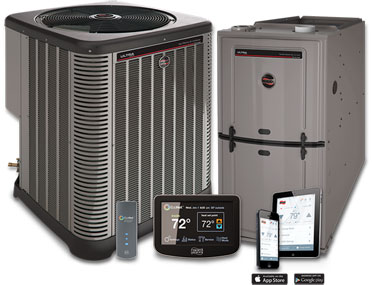Indoor Air Quality: Poor IAQ Can Trigger Respiratory Issues
Reducing indoor allergens that can trigger respiratory problems
If you suffer from respiratory illnesses such as asthma or severe allergies, each season carries unique indoor air quality struggles. During the summer and winter months, you are tempted to keep the windows and doors closed for comfort, but stale air and airborne particles recirculate.
The pleasant outdoor temps of spring and fall tempt you to open windows, but both are prime pollen and mold seasons. When you struggle to breathe, indoor air quality (IAQ) is a concern no matter the season.
“Most of the things that cause problems are odorless,” says Dr. Nicholas BuSaba, associate professor of otolaryngology at Harvard -Medical School. “So, in many cases, there’s nothing to alert you to the problem.” Symptoms and flare-ups might be the first indication of poor indoor air quality, followed by fatigue, sleepiness, and digestive problems.
Steps to Improving IAQ
If you live with asthma or allergies, there are measures you can take to improve indoor air quality and prevent the onset of flare-ups. It is not possible to eliminate all allergens, the key is to reduce the numbers and therefore your exposure to them. Here are a few strategies you can take to reduce airborne particles and breathe easier.
Clean Thoroughly
Having a regular house cleaning regime is an important step in removing particulates before they become airborne again.
- Focus on obvious surfaces, such as furniture and accessories, but look for dust, dander, and pet hair in hard-to-reach areas as well. Use cleaning products manufactured to hold dust. Remove clutter that traps and holds dust.
- Vacuum carpets and area rugs regularly, perhaps as often as twice weekly. Use a vacuum cleaner equipped with a HEPA filter.
- Wash bedding and drapes often, especially if you share your home with pets. Don’t forget the items dogs or cats frequently lie on. Use the hot water cycle on your washing machine—the water should be at least 130° Consider dust mite-proof covers on bedding and mattresses/box springs.
In-door Plants: A Positive or a Negative?
In-door plants add beauty and ambiance to your home and they are oxygen-producing additions. So, is there a problem? In general, plants help with indoor air quality, but the soil they reside in might be a source of mold spores and flowers a source of pollen.
Allergens affect individuals differently. This might be a problem you have not considered. Overall, if your respiratory issues are severe, consider whether the green is worth the risk of attacks.
Change filters often
Be aware of appliances around the house that have filters and clean or change them often. Vacuum cleaners have filters. Clothes dryers have filters. HVAC systems have filters. Every time you clean or change a filter, you are removing very fine airborne particles from your indoor space.
Manufacturers recommend changing the HVAC system air filter every three months, but if you suffer from a respiratory illness, change the filter more frequently.
How often? Perhaps monthly during spring and fall pollen season. Since airborne particles are also trapped in your ventilation ducts, plan on having them cleaned regularly.
Consider an Air Purifier for Better Indoor Air Quality
If indoor air quality is important because of respiratory illnesses and your home has unique problems related to airborne particles, additional technology might help. If you live near a construction site, near a busy thoroughfare, or on a dusty road, you might need more than just the HVAC air filter.
If your family pet makes your eyes water or the plant Granny gave you causes you to sneeze, consider an air purifier. Portable ionic air purifiers are affordable solutions to help capture irritants that may trigger your symptoms.
They come in attractive styles and can be placed near the source of the problem. You might consider a dehumidifier for troubling sources of humidity that can lead to mold and mildew growth.
Fresh Air is the Best!
It is important in every season to open windows and doors to release stale air and contaminants and to fill the house with fresh air. Find a day with moderate temperatures and open up… A complete exchange of air happens approximately every 15 minutes.
Want more information about Indoor Air Quality? We Can Help!
If you are considering improving your Indoor Air Quality, call us at 281-238-9292 or contact us via email.
Connect with All Cool AC and Heating on Facebook.
